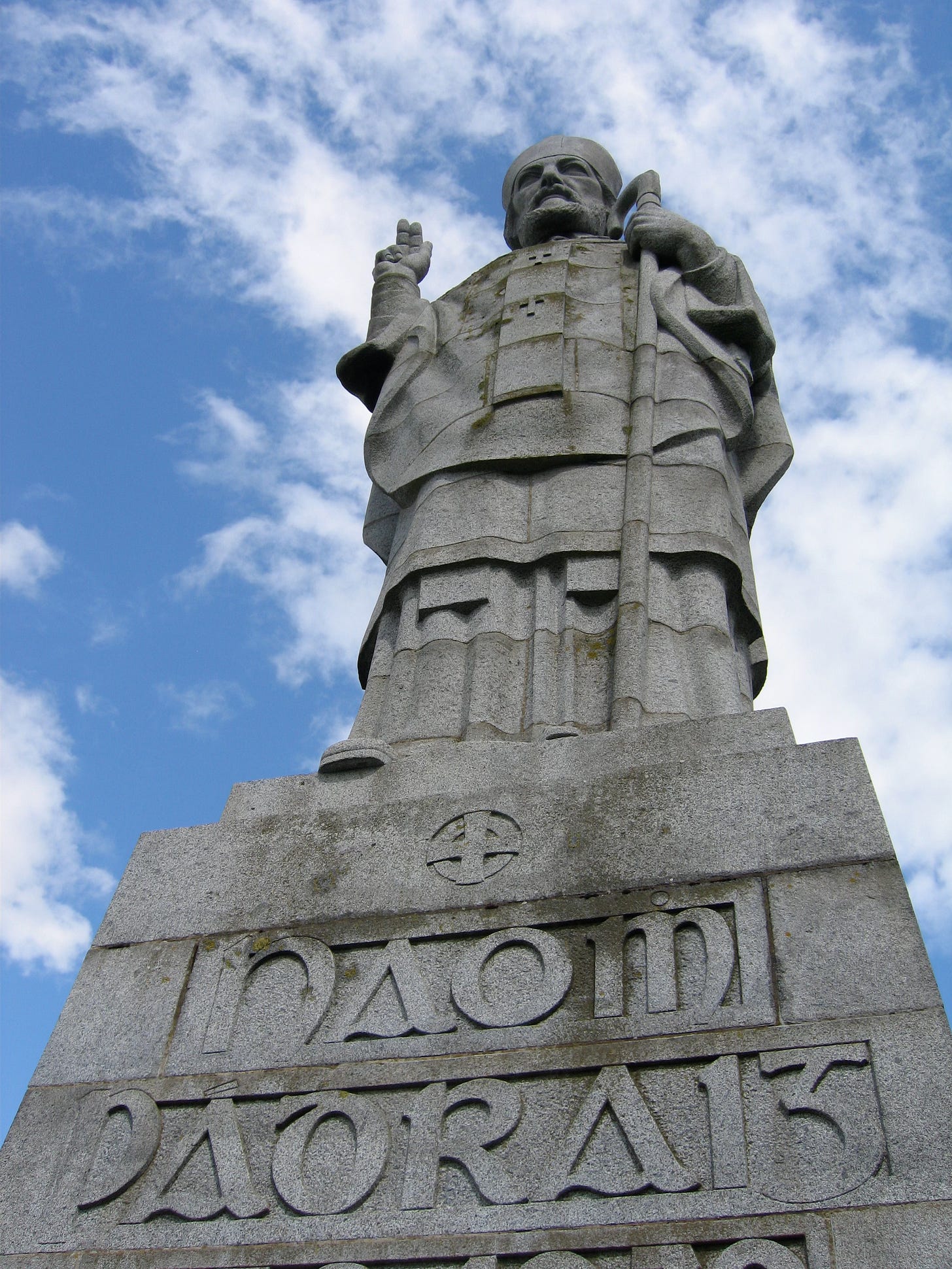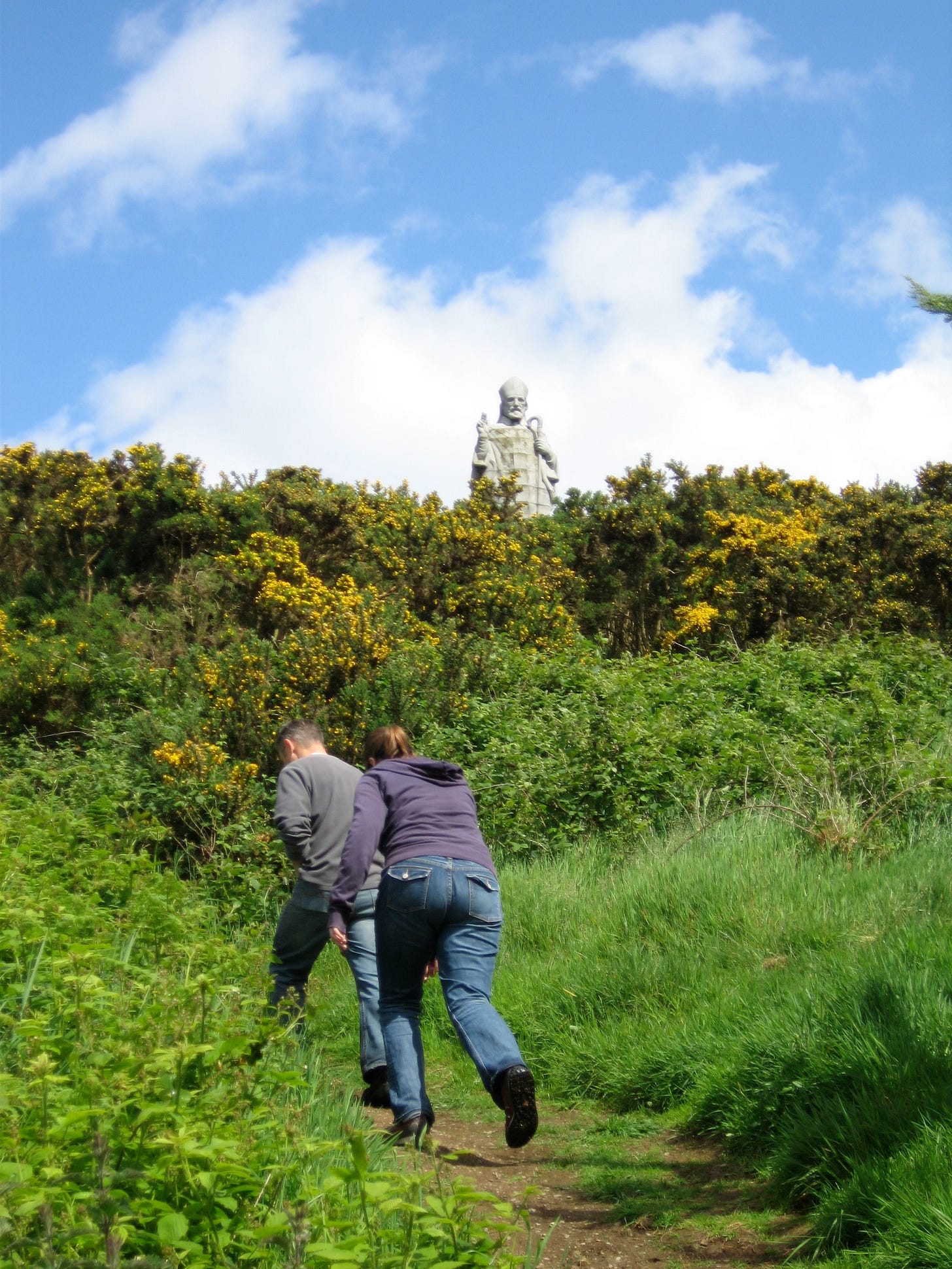Weekend Reads v. 15.3.2025
5 years that felt like 5 weeks.

Over the past week or so, I saw quite a few posts in various corners of social media asking people to share their memories of where they were 5 years ago that week. It was, after all, the five-year anniversary of the pandemic.
Maybe you also remember that week like it happened last month.
It was a memorable week for me for all the same reasons it was a memorable week for you. In addition to those shared reasons, it was also the week I moved to D.C. from Connecticut. The 13th of March, to be exact.
That morning, I loaded up my cats, dropped off the keys to my apartment, and headed south. The freeway winding around New York City was eerily empty. Because D.C. was slower than NYC to shut down, that first weekend in my new city felt a bit optimistic. Maybe this thing would blow over soon? Conversations consisted of people trading first-hand accounts of the virus. They had a cousin in Seattle who knew someone who had it and recovered last week. Or they had a neighbor who knew a guy who didn’t survive last month.
I had no clue that the next two years would simultaneously hold the hardest and best months of my life.
Covid in D.C. was a horrible experience for me. I can’t count the number of physical altercations I witnessed in Safeway on Wisconsin Ave. Or the number of times a random passerby would yell at me or another person just going about their business. D.C., it appears, does not come together in a crisis. Or at least my neighborhood didn’t.
Around the end of 2020, I felt a very deep divide growing around me. Life felt categorized by “us” and “them.” People crossed the street when they saw you coming. Or people walked back down the stairs when you entered the stairwell. It felt as though everyone viewed strangers as an enemy instead of as a neighbor. Soon, I was thinking this way, too. I found myself holding my breath when I met new people. No longer curious, I developed a very shallow way of communicating with people. I didn’t want to know too much because that could spark an outburst, and I was maxed out on outbursts. I asked a lot of questions about weather and favorite spots for takeout back then.
Toward the end of this week, I noticed I seem to have finally exhaled from that dark and dreary season of life. I was talking with a colleague about some benign office topic (Printers that don’t work! Favorite foods for a desk lunch! Secret commuting tricks!) when she made a casual reference her political beliefs.
There was no defensive couching. There was no poll to gauge who was right or who was wrong between us. There was no rolling of the eyes. There was only an open curiosity and the early foundation of respect between two new colleagues as we chatted about things we had in common and a vague reference to possible different viewpoints of the world.
This exchange underscored a truism for me: we were built to live in community. We were made to navigate the messiness that is human nature. We thrive when we test our thinking against the thinking of someone else. Someone I’d forgotten these truths over the course of the pandemic.
Of all the tragedies Covid brought, this forgetfulness seems to be the thing that has lasted longest for me. Thankfully, my memory is returning.
Ever dreamt of taking an art class in Provence? Here’s your chance.
These patches for outdoor clothing (think ski jackets) are a good way to repair and maybe also a way to cover? Swag fleece is often the best fleece, but who wants a random company logo on their jacket?
Are noise-cancelling headphones to blame for hearing loss?
Confronting your algorithmic identity. See also: When the Picked for You suggestions are way off.
I always thought it was Millennials, but apparently Gen Z is in love with lower case.
The case for reading fiction.
“It turns out that if you want to gain insight into other people’s thoughts, feelings, and motives, reading fiction typically beats nonfiction. Fiction is also better for enhancing empathy than watching TV and movies. Across 70 experiments, novels did more to boost concern for and understanding of others.
What’s unique about reading novels is that they invite us to imagine ourselves as the characters. When Katniss Everdeen, Harry Potter, or the March sisters are on a screen, you’re observing them. When you read their stories, you become them. Slowly but surely, that builds your capacity to see perspectives that aren’t yours and feel compassion for people who aren’t like you.” (Source)
Didn’t realize this was a controversial question!
Little King has new pantry items. I’d like to try this coffee from Maine, this shitake mushroom oil, and mimaki umeboshi (Japanese pickled plums).
Constantly refreshing the Missouri Star Quilt Co. tracker and watching videos like this one to follow the finishing process for my first quilt. (!!)
How momentarily acting like an extrovert can help an introvert. As a person firmly planted on the border of extrovert land and introvert land, this really hit home.
Another weekly recap from Paris Fashion Week.
Why we should care about kids who don’t show up for school.
This reminds me of a part of the early aughts I was hoping wouldn’t repeat itself: “Inside the hot girl economy.”
Happy St. Patrick’s Day!



